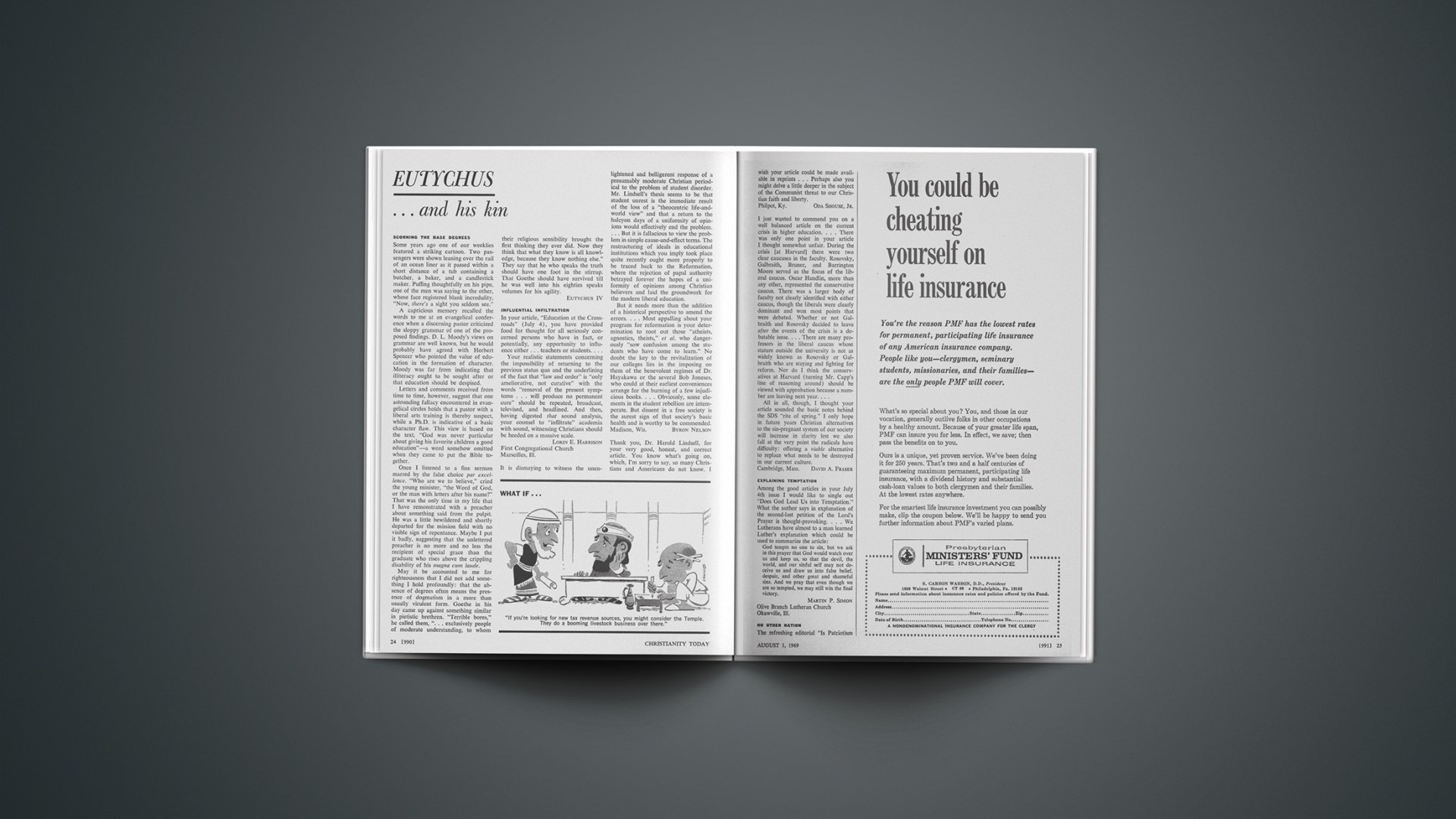Despite the sustained lobbying of both establishments the attempt to unite the Church of England with the Methodists has ended in failure. Having done their bit by achieving slightly more than the required majority, the Methodists have some reason for looking reproachfully at the Anglicans who, after all, initiated the discussions, and among whose defaulters were five diocesan bishops (such episcopal dissension has been very rare in major ecumenical undertakings).
But more than head-counting is called for here. Six years ago the English theologian Dr. James Packer made some pungent remarks when the merger report was first published. He pointed out that both churches had dwindled considerably during this century, that neither was noted for either soundness of doctrine or sanctity of life, and that to expect that reunion would invigorate them was “to expect two consumptives to get better simply through getting married.”
The breakdown of the British merger plan, coupled with the abortive attempt earlier this year to unite the Southern Presbyterians with the Reformed Church in America, must necessarily raise questions about what is going wrong with the ecumenical movement, whether it is losing some of its impetus, and why it has changed over the years.
Forty-two years ago this month the Faith and Order World Conference met in Lausanne. At its inaugural session Professor Werner Elert of Erlangen made what turned out to be a not untypical contribution. “If we are not one in the truth,” he said, “we are not at one in Christ. Therefore, all who seek for union in Christ must examine themselves whether they are in the truth.… There can be no recognition, no confession of truth without a recognition and rejection of error.”
If the above statement is true—and we believe it is—a solemn question confronts the World Council of Churches, to which heresy appears to be an anachronism in a world come-of-age.










